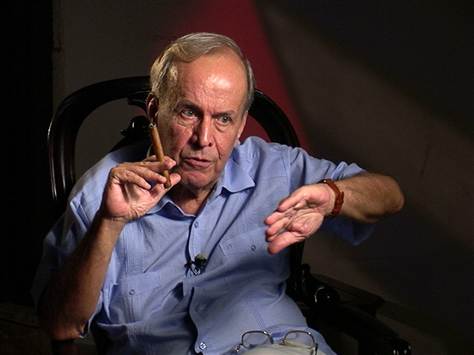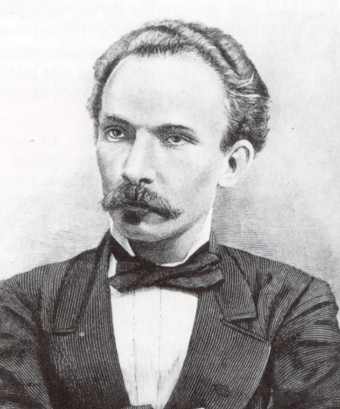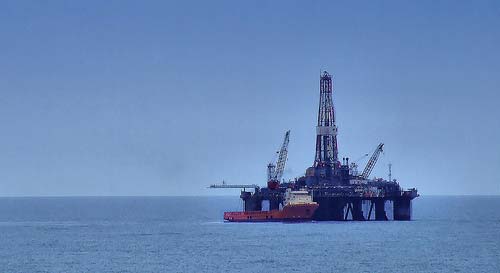Under the presidency of Raúl Castro, Fidel Castro’s younger brother and, like him, an octogenarian, Cuba is poised between hope and dejection.
The hope is represented by the enormous Chinese-built drilling rig which has been towed half way around the world and, since March, has been lumbering along the north coast of the island in search of the oil that all experts say lies under the sea in unknown but potentially huge quantities.
If it is found, it could transform the economic and political outlook of the island, mercilessly blockaded as it has been by the US for the past six decades. Some say there is as much as 20 billion barrels to be found in the rich Gulf of Mexico, comparable to the proven reserves of the US itself.
Recently, I had a long conversation with Ricardo Alarcón, Cuba’s former man at the United Nations, now the president of the Poder Popular, the National Assembly of People’s Power (Cuba’s parliament), and one of the most influential men on the island.
“Our people, . . . even the US Geological Survey, all have got different estimates, obviously. But what no one says it that there’s no oil,” he says.

Disappointingly, the first two wells drilled by Cuba’s Spanish partner did not strike oil and it has been taken over by some of the island’s other partners, which include Malayans, Indians and Angolans. But very few explorations begin by finding oil first time.
More to the point, Petróleos de Venezuela, the vast company ultimately controlled by Venezuelan president Hugo Chávez, a close associate of this island and its government, has joined the search.
Given that Opec statistics show that the Venezuelans have the world’s greatest reserves of oil, exceeding even those of Saudi Arabia, that cannot but be good news. Alarcón is confident the wells will be brimming within the next few years.
Cuba produces some of its own oil but it is heavy stuff, better adapted to fill holes in highways than being put into the tanks of cars. Chávez has been providing the island with cheap oil for years, relieving this country of paying a virtually impossible import bill. But everyone here would be more comfortable if Cuba could find its own oil.
In such circumstances, and for fear of disappointment, Raúl Castro has minimised popular expectations of an immediate oil bonanza. Disappointment is a danger with a population that has forgotten much of the heroism of the revolution or was too young to experience it.
Yet there are weightier economic matters than oil supply pressing on Cuba. No less an authority than Fidel Castro himself has said that Marxism-Leninism has failed. Indeed, for some years now, the island has not been referred to officially as a Marxist-Leninist state. Rather is it a martiano state, taking its guidance not from the German or the Russian but from José Martí, a national hero born in Havana in 1853.
Martí was the principal force behind the successful campaign that ultimately freed Cuba of rule from Spain in 1898. A poet, intellectual and author, he was an early rebel against the Spanish crown and at 16 was condemned to hard labour in chains in a quarry for his anti-colonialist views.
Martí spent much of his life in the US. He returned to his homeland in 1895 to take part in the fray with the Cuban rebels and was shot dead in his first military encounter.

Spanish rule ended four years later when Washington, which had been seeking to take over the island for most of the 19th century, declared war on Spain and, with no consultation with the Cuban rebels, trounced the Spaniards and installed a military government.
The eclipse of Marxism-Leninism has allowed the Cubans to propose an alternative to the highly centralised and woefully inefficient state economy.
This had been imposed by Fidel when the Soviet Union became Cuba’s only shield against any repetition of the unsuccessful invasion planned by former US president Dwight Eisenhower and executed by John F Kennedy in 1961.
The end of the cold war and the disappearance of the USSR in 1991 meant Cuba was again on its own, this time deprived of the subsidies that had kept it afloat. Had it not been for deliveries of cheap oil from Chávez, Cubans would have been in an unimaginably bad situation.
Last year the Cuban Communist Party committed itself to seeking “new forms of management of the economy . . . training in the creation of the new structures . . . [and] strong, new and well-organised companies”.
The impossible days of micromanagement were over, as was the custom of workers pretending to work while the authorities pretended to pay them. There are no more guarantees for a job for life. In strictly measured doses, private enterprise is beginning to be allowed.
In this context, the recent policy of releasing uncultivated government lands to private farmers has been a great success, Alarcón says, creating 300,000 new jobs in one year as well as a variety of new farm products.
“The shortage of vegetables is a thing of the past,” he says, and rejoices that in some parts of the country you cannot escape the notices of eager landlords and landladies advertising rooms to let to tourists. But he also acknowledges that there will be some increase in inequality in a society not used to it. He is keen to emphasise that the government is wrestling with the question of the taxation of the new entrepreneurs.
The beautiful city of Havana, though partially restored, still shows the damage done by decades of no repair and the absence of paint and putty, though the resort of Varadero, with its beaches of the finest sand, is still immensely attractive. More tourists visit Cuba than Israel.
If only the Cubans could find that oil . . .















